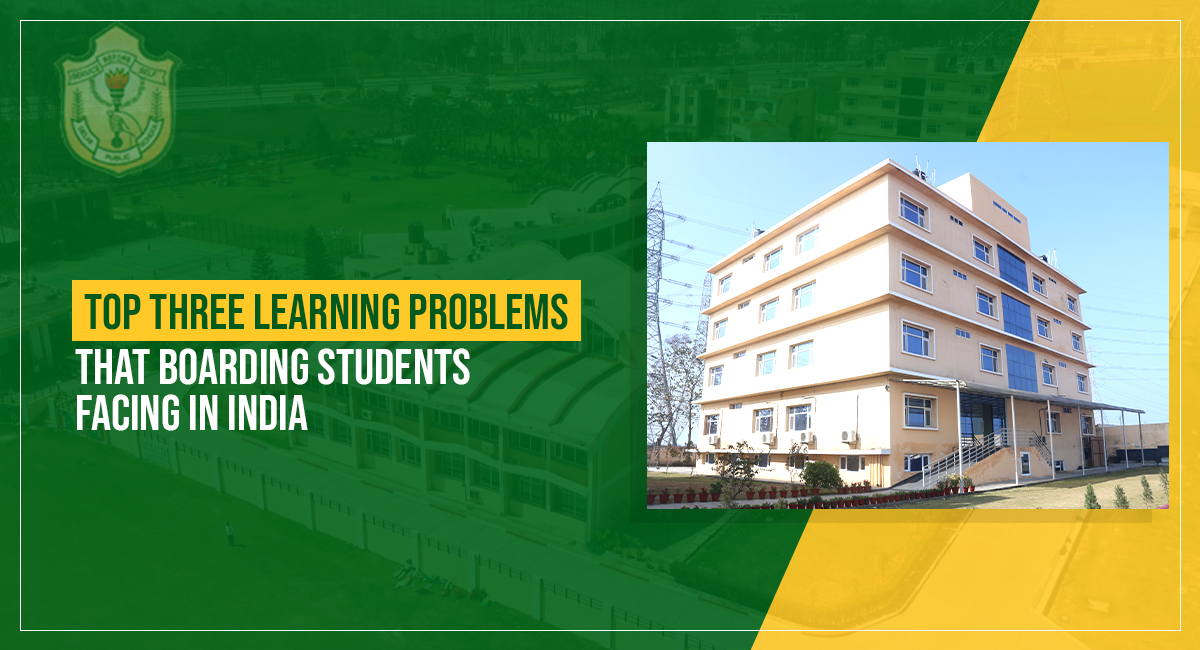Boarding schools in India hold a prestigious position in the country’s education landscape, renowned for their holistic approach to grooming students academically, socially, and emotionally. However, despite the numerous benefits they offer, boarding students encounter unique learning challenges that require attention and effective solutions. Lets delves into the top three learning problems faced by boarding students in India, specifically focusing on the context of prestigious institutions like the Delhi Public School Yamunanagar, shedding light on their experiences and proposing strategies to mitigate these challenges.
Academic Pressure and Performance Anxiety:
One of the most prevalent learning problems among boarding students in top institutions like Delhi public school Yamunanagar is the overwhelming academic pressure coupled with performance anxiety. The rigorous academic curriculum, combined with high expectations from parents, teachers, and peers, often leads to stress and anxiety among students. The constant need to excel academically can take a toll on their mental well-being and hinder their overall learning experience.
Furthermore, the competitive environment prevalent in top boarding schools in india intensifies the pressure to outperform peers, leading to a fear of failure and a relentless pursuit of perfection. This pressure cooker environment can adversely affect students’ concentration, motivation, and confidence, ultimately impeding their academic growth.
To address this challenge, boarding schools must prioritize student well-being over academic achievements. Implementing stress management programs, offering counseling services, and promoting a healthy work-life balance are essential steps to alleviate academic pressure and foster a supportive learning environment. Additionally, adopting alternative assessment methods that focus on holistic development rather than solely on grades can help reduce performance anxiety and encourage students to embrace learning as a journey rather than a destination.
Cultural Adjustment and Homesickness:
Another significant learning challenge faced by boarding students in India, particularly those from diverse cultural backgrounds, is the process of cultural adjustment and dealing with homesickness. Moving away from the familiarity of home and adjusting to a new environment can be daunting for many students, leading to feelings of isolation, loneliness, and nostalgia for their families and hometowns.
In institutions like Delhi Public School Yamunanagar, where students from various states and countries converge, cultural diversity adds another layer of complexity to the adjustment process. Students may struggle to adapt to new customs, languages, and social norms, making it challenging for them to fully immerse themselves in the academic and social life of the boarding school.
To support students in overcoming cultural adjustment and homesickness, boarding schools must prioritize creating an inclusive and welcoming environment that celebrates diversity and promotes cultural exchange. Organizing cultural awareness programs, facilitating peer support groups, and offering regular communication channels with families can help students feel connected and supported during their transition.
Additionally, providing opportunities for students to participate in extracurricular activities, sports, and community service projects can help them forge new friendships, develop a sense of belonging, and create fond memories that alleviate feelings of homesickness.
Time Management and Self-discipline:
Effective time management and self-discipline are essential skills for success in any educational setting, but they pose a significant challenge for many boarding students in India. The structured routine of boarding school life, coupled with academic demands and extracurricular commitments, requires students to manage their time efficiently and prioritize tasks effectively.
However, the freedom and independence that boarding life affords can sometimes lead to procrastination, distractions, and poor time management habits among students. Without proper guidance and support, many students struggle to strike a balance between academic responsibilities, personal pursuits, and leisure activities, leading to academic underperformance and increased stress levels.
To help students develop essential time management and self-discipline skills, boarding schools should incorporate structured routines and study schedules into their daily lives. Providing guidance on goal setting, task prioritization, and effective study techniques can empower students to take ownership of their learning journey and make the most of their time.
Moreover, fostering a culture of accountability and peer support can encourage students to stay focused and motivated, while also learning from each other’s experiences and strategies for success.
Conclusion:
Boarding schools in India, including prestigious institutions like the Delhi Public School Yamunanagar, play a pivotal role in shaping the academic, social, and personal development of students. However, they also present unique learning challenges that require careful attention and proactive measures to address.
By recognizing and addressing issues such as academic pressure, cultural adjustment, homesickness, and time management, boarding schools can create a supportive and nurturing environment where students can thrive academically and personally. Through collaborative efforts between educators, parents, and students themselves, these challenges can be overcome, enabling boarding students to unleash their full potential and emerge as confident, well-rounded individuals poised for success in the global arena.

